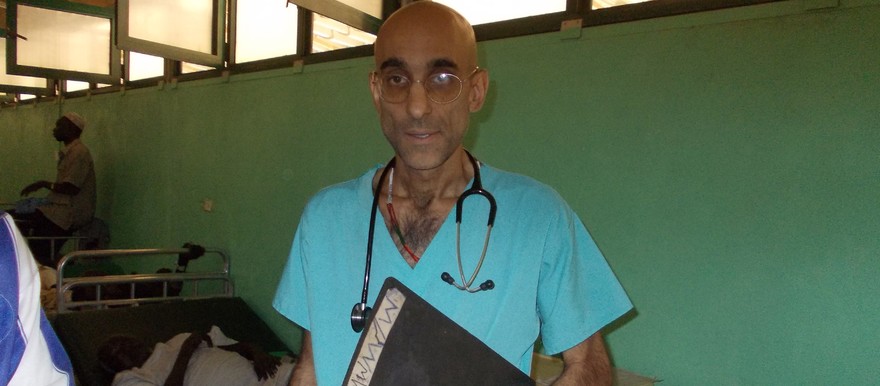The only hospital in the Nuba Mountains is losing medical staff to aid organizations working across the border in Yida refugee camp.
The 350-bed hospital in Gidel is the only hospital serving a population of 500,000 people in the Nuba Mountains. It now trains locals who have not graduated from secondary school because it cannot retain professional nursing staff.
Dr. Tom Catena, the only doctor at Mother of Mercy Catholic Mission Hospital, told Radio Tamazuj that “we keep losing staff, they’re going to Yida – they get more money in the camps.”
“We don’t have anywhere near enough staff. We’re down to one clinical officer, and myself, there’s one doctor. That’s it to take care of the hospital. Other staff is not enough. Nursing staff is not enough. We keep losing staff, they’re going to Yida – they get more money in the camps,” he said.
He added: “Retaining staff is a big problem. We don’t have enough staff to maintain the services. So staff are working extra hard to try to maintain our level of service, because we’re very busy.”
The doctor noted, however, that the hospital generally had enough medicines, owing to donor support.
Mother of Mercy Hospital has been training nurses for five years, and has also sent some local candidates abroad for outside training. “Those people won’t be back for quite a long time,” explained Catena. “So in the meantime what we’re doing is taking local people that are PA graduates, maybe they’ve finished one year of form one of secondary school. We’re taking them, we’re training them on-the-job. The same process we’ve done for the past five years.”
“The only way to keep [enough] nurses here is to keep taking people from the outside; these are people that have gone to local schools, and do on-the-job training with them as nurses, then after a bit they can function as a ward nurse,” he said.
Current situation at the hospital
Caseload at the hospital has increased lately because the dry season improved access to the hospital.
There are, however, fewer cases of bombing victims: “The civilian casualties are less than we had before. I think it’s not because the bombings are less, I think it’s because the people have gotten smarter and when they hear the Antonov overhead they jump into the holes and they protect themselves. I think that’s been a difference between now and several months ago,” said Catena, a surgeon.
“The current health situation is we’re extremely busy. The main problem we’re having now is gastroenteritis which is diarrhea and vomiting in the children. That plus malnutrition are the two main problems we’re having now. This is in addition to traumatic injuries still from the fighting. We’re getting traumatic injuries coming, not as many as we had, say, a year ago, but they’re still coming periodically. And all the manner of problems that come. All sorts of surgical problems are coming.”
A ceremony was held on Tuesday in Kauda to honor Catena and bid him farewell as he is departing on leave to the United States. The ceremony was attended by military leaders, commissioners, civil administrators, representatives of the NGO consortium, and large crowds of people.
Photo: Dr. Tom Catena making rounds at the hospital in Gidel, South Kordofan, 29 January 2013 (Radio Tamazuj)
To contact Radio Tamazuj with news tips or information write to radiotamazuj@gmail.com. For instant updates follow @RadioTamazuj on Twitter.




